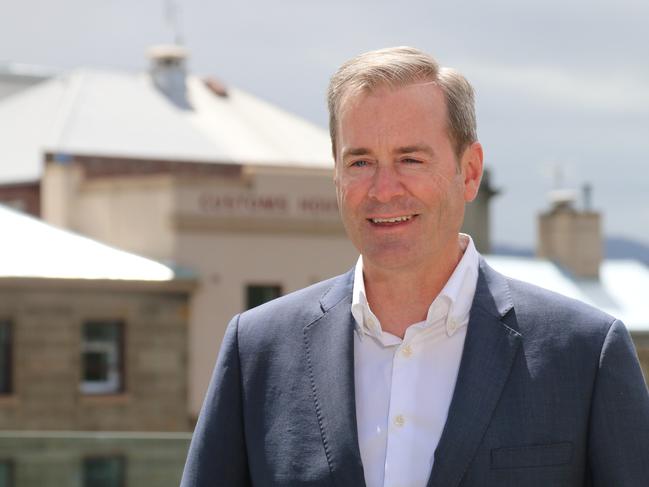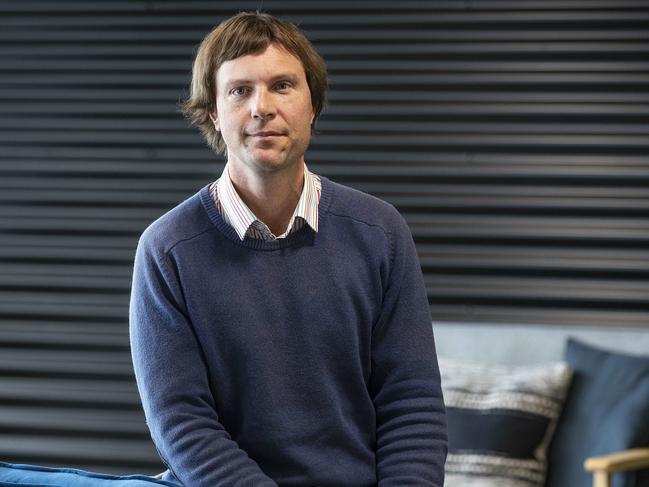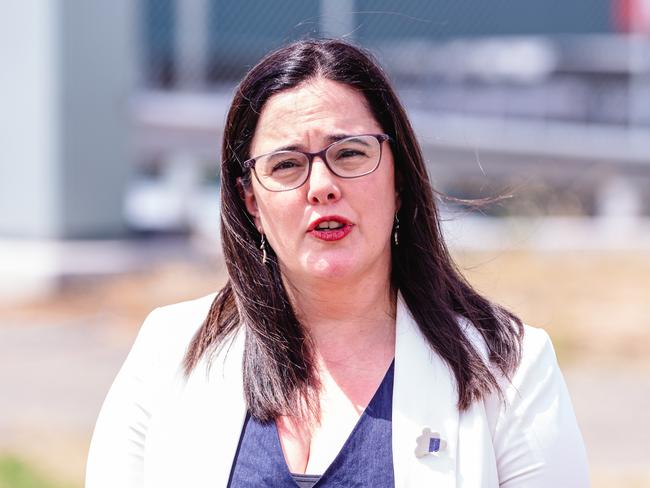Airbnb says it’s not responsible for Hobart’s housing woes, in wake of council failed bid for cap power
Airbnb has hit back at suggestions it is responsible for Hobart’s housing shortage crisis, after council lost a bid for more power to control the short-stay sector. LATEST >>

Tasmania
Don't miss out on the headlines from Tasmania. Followed categories will be added to My News.
Airbnb has again hit back at suggestions it is responsible for Hobart’s housing shortage crisis, in the wake of news the Hobart City Council had lost a bid for more power to control the short-stay sector.
On Friday, the Tasmanian Planning Commission handed down a decision on whether the council could cap new whole-house short-stays in residential areas, finding the proposed rules would clash with existing planning scheme directives.
The decision also “made clear” it was the only Planning Minister Michael Ferguson who could issue such a directive.
But Susan Wheeldon, Airbnb country manager for Australia and New Zealand, said the company wasn’t to blame for Hobart’s housing affordability crisis.
She said the causes of housing affordability differed from place-to-place with “legacy factors” that often predated the founding of Airbnb by decades.

These included the supply of new homes, the ratio of public housing, the number of empty dwellings and rooms, interest rates and broader economic conditions.
Ms Wheeldon also noted short-term rentals usually comprised “a tiny proportion of the overall property market, however the company was keen to help provide “meaningful solutions” to the housing supply and affordability problem.
“Short-term rentals also provide a way for everyday people to stay afloat and combat rising costs of living and growing mortgage repayments,” she said.
“It’s no surprise that we’re seeing many people rely on hosting to make ends meet in the face of the current economic climate.”
Ms Wheeldon said in 2021, almost four in 10 of its surveyed hosts said hosting income had helped them stay in their home.
“Many hosts also do not use their property for short-stay accommodation all-year round – with many doing so on an ad-hoc basis to help meet their mortgage repayments, pay bills or save for their retirement,” she said.
Hobart City Council loses bid for powers to place cap on number of Airbnb houses
HOBART City Council has lost its bid for more power against the city’s surging Airbnb situation, failing in a push for legislation allowing it to cap new whole-house short-stays in residential areas.
On Friday, the Tasmanian Planning Commission handed down a decision on whether the Hobart City Council could better regulate Airbnb through a planning scheme amendment – finding the proposed rules would clash with existing directives.
Acting Hobart Lord Mayor Helen Burnet said by following the Minister’s advice in taking its short-strategy to the Planning Commision, there had been a 12-month delay.
“The decision confirms the City of Hobart’s apprehension in regard to its efforts to overturn state government requirements to allow the council to prohibit short-stay accommodation in parts of Hobart,” she said.
“City of Hobart followed the advice of the Minister which ultimately was rejected by the Tasmanian Planning Commission.
“This has also resulted in a 12-month delay and the City of Hobart will now need to consider its options with further planning legal advice.”
The Tasmanian Planning Commission said the Minister – in this case Planning Mnister Michael Ferguson – was the person with the power to issue planning directives.
Benedict Bartl, principal solicitor with the Tenants’ Union of Tasmania, said the decision “made clear” that it was only the Minister who had the power to provide councils with the discretion to approve or refuse visitor accommodation within their municipality.
“We are calling on the Minister to immediately amend the planning directive so that councils have the power to put the community first,” he said.
“The repercussions of the state government’s inaction have been diabolical for long-term tenants with tenants forced to move further away from their workplaces, family and local communities in order to find a home.”

Mr Bartl said there were currently 361 entire properties listed as Airbnbs with the Hobart City Council, a jump from 322 a year ago, and 296 two years ago.
“In other words, there has been a 22 per cent increase in the number of entire property Airbnbs in the HCC municipality over the past two years,” he said.
He said in the same period, median rents had jumped from $535 to $620 per week, and that both Hobart and Launceston only had vacancy rates of 0.6 per cent – when a healthy vacancy rate was about 3 per cent.
Shadow Housing Minister Ella Haddad said the Tasmanian Planning Commission’s decision showed the government had “dropped the ball” when it came to addressing the state’s housing crisis.
“The government tried to shirk its responsibility to act on the issue, stating it was the responsibility of councils to make their own decisions on short-stay applications,” she said.
“The Liberals need to act now to fix this short-stay stuff-up, and act at a statewide level to regulate the short-stay market.”

But the state government isn’t budging on its refusal to intervene or change its policies on short-stay accommodation.
Mr Ferguson said the government was standing by the improvements it had already made to the planning system with the Statewide Tasmanian Planning Scheme.
He said the Short Stay Accommodation Act, introduced in 2019, also helped councils make informed planning decisions with information from platforms like Airbnb.
Mr Ferguson also said if the Hobart City Council had already been operating under the Tasmanian Planning Scheme – which it is yet to adopt – “the pathway would have been much simpler”, with “clear process for councils to introduce locally unique planning requirements”.





